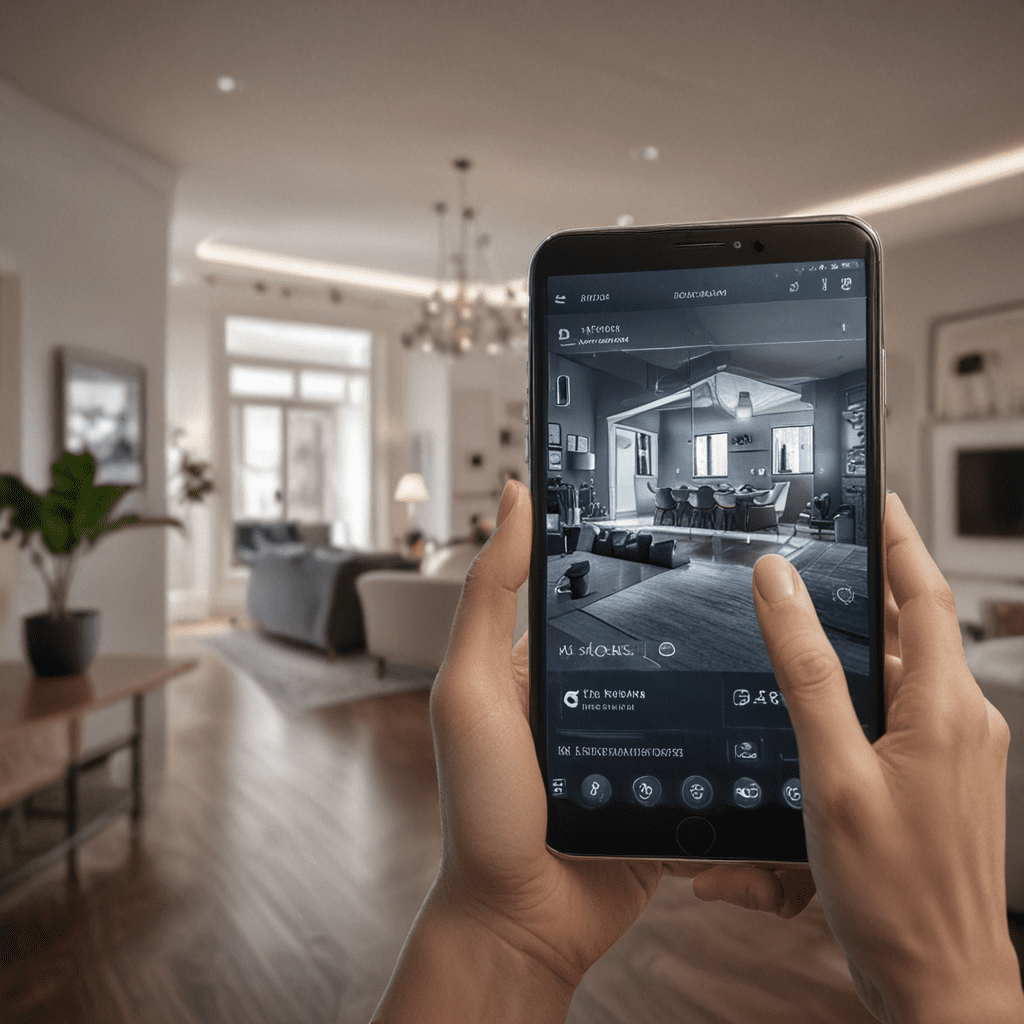Introduction to Smart Homes and Mobile App Development
Smart homes have emerged as a technological marvel, seamlessly integrating technology into our living spaces to enhance convenience, energy efficiency, and security. At the heart of these smart homes lies mobile app development, providing users with a centralized and intuitive interface to control and interact with their smart devices.
Current Trends in Smart Home Mobile App Development
The smart home mobile app development landscape is constantly evolving to meet the growing demands of users. Here are some notable current trends:
- Voice Control Integration: Voice control has become increasingly popular, allowing users to interact with their smart homes using natural language commands.
- Remote Access and Control: Mobile apps enable users to access and control their smart homes remotely, providing added peace of mind and convenience.
- Personalized User Experiences: Apps are becoming more personalized, tailoring recommendations and experiences based on individual user preferences.
Emerging Innovations in Smart Home App Technology
The future holds exciting innovations for smart home app technology:
- Artificial Intelligence (AI) and Machine Learning (ML): AI and ML algorithms can automate tasks, predict user behavior, and provide personalized recommendations.
- Enhanced Cybersecurity: As smart homes become more connected, robust cybersecurity measures are crucial to protect user data and privacy.
Challenges and Opportunities in Smart Home App Development
While smart home mobile app development offers numerous benefits, it also presents certain challenges:
- Device Compatibility: Ensuring compatibility across different smart devices and operating systems can be complex.
- Data Privacy and Security: Handling user data responsibly and mitigating security risks is paramount.
- User Interface (UI) and Experience (UX) Design: Creating intuitive and user-friendly interfaces is essential for enhancing user satisfaction.
6. Integration of Artificial Intelligence (AI) and Machine Learning (ML)
AI and ML are revolutionizing smart home app development by:
- Automated Tasks: AI-powered apps can automate routine tasks, such as adjusting lighting or setting schedules, based on user preferences and environmental data.
- Predictive Maintenance: ML algorithms can analyze data to predict device failures and schedule maintenance before issues arise, improving device reliability.
- Personalized Recommendations: AI can analyze user behavior and preferences to provide personalized recommendations for energy optimization, security measures, and entertainment options.
7. Cybersecurity Considerations for Smart Home Mobile Apps
As smart homes become increasingly connected, cybersecurity concerns must be addressed in mobile app development:
- Secure Data Storage and Transmission: Apps should encrypt sensitive user data and implement secure data transmission protocols to prevent unauthorized access.
- Vulnerability Management: Developers must regularly assess and patch vulnerabilities in app code to protect against potential security breaches.
- User Authentication and Authorization: Strong authentication mechanisms, such as biometrics or two-factor authentication, are crucial to prevent unauthorized device access.
8. Future Trends in Smart Home Mobile App Development
The future of smart home mobile app development holds exciting possibilities:
- Edge Computing and IoT Integration: Edge computing will bring data processing and storage closer to smart home devices, reducing latency and improving performance.
- Augmented Reality (AR) and Virtual Reality (VR): AR and VR will enhance user experiences by providing immersive visualizations of smart home environments and enabling remote device interaction.
- Blockchain Technology: Blockchain can enhance data security and transparency in smart home ecosystems, enabling secure device management and automated device interactions.
9. Emerging Technologies for Smart Homes
Innovative technologies are shaping the future of smart homes:
- Wireless Power Transmission: Wireless charging technologies will eliminate the need for cables and outlets, enhancing convenience and aesthetics.
- Flexible Electronics: Flexible displays and sensors will allow for more versatile and customizable smart home devices, blending seamlessly into home décor.
- Robotic Assistants: Advanced robotic assistants will perform tasks such as cleaning, security monitoring, and even providing companionship to homeowners.
10. Conclusion: The Future of Smart Home Mobile App Development
The future of smart home mobile app development is promising, as AI, cybersecurity, and emerging technologies continue to enhance user experiences and transform the way we live in our homes. These apps will become increasingly indispensable, enabling homeowners to live more conveniently, efficiently, and securely in their smart environments.
FAQ
Q: How do I choose the right smart home mobile app?
A: Consider factors such as app features, user reviews, device compatibility, and cybersecurity measures.
Q: How can I improve the security of my smart home app?
A: Use strong passwords, enable two-factor authentication, and keep your app and device software up to date.
Q: What are the benefits of using AI in smart home apps?
A: AI can automate tasks, provide personalized recommendations, and enhance predictive maintenance capabilities.


